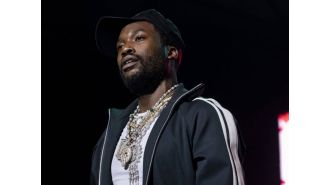CEO Transitions
This past week was a remarkable one in the technology business. At the start of the week, Steve Jobs passed the leadership of Apple to Tim Cook and at the end of the week, Eric Schmidt passed the leadership of Google to founder Larry Page. Apple and Google are two of the most important technology companies in the world and the leaders in the mobile business which is certainly the next frontier in tech. These two moves have me ruminating on the role that CEO transitions play in the development of great companies.
I have been involved in many CEO transitions in my time in the tech/startup/venture business. They are a time of great opportunity and great risk for companies. Getting the right person in the corner office at the right time is absolutely critical and not particularly easy.
In 2010, two of our most important portfolio companies went through similar transitions to what is going on now at Apple and Google. At the start of 2010, Etsy's founder Rob Kalin reassumed the leadership role at Etsy, replacing Maria Thomas who had replaced him 18 months earlier. And near the end of 2010, Dick Costolo took the leadership role at Twitter from founder Evan Williams (who had two years prior taken the leadership role from founder Jack Dorsey).
In all of these transitions you see one kind of leader, the founder, who represents the soul of the company and often also is the "moral authority on product" to use a term I take from my friend and colleague Peter Fenton. And you also see another kind of leader, the operating executive, who will bring order, focus, calm, and execution to a business.
There are periods in a company's life when the founder is the better leader and there are times when the operating executive is the better leader. And there are times, like what is certainly the case at Apple, where you have no choice. There are not many founders in a given company (at Twitter we are blessed with three, Google is blessed with two), but there are certainly plenty of talented operating executives in the world. When a founder cannot serve any more for whatever reason, then you must find someone who can ably replace them. Ideally that person, like Dick Costolo and Tim Cook, will come from within. An internal transition of leadership is much less intrusive than an external transition of leadership.
If you have an operating executive in the leadership role, you should try as hard as you can to keep the founder(s) close to the business and engaged and involved in the key strategic issues facing the company. There are some issues that the founders simply know best on and they must be consulted to and listened to when they come up.
Ken Auletta wrote what I think is the best piece on the Google transition yesterday for the New Yorker. Ken says:
According to close advisors, the Google C.E.O. was upset a year ago when co-founder Larry Page sided with his founding partner, Sergey Brin, to withdraw censored searches from China.
That issue, Google's role in China, is exactly the kind of strategic issue where the founders probably know best. I posted my thoughts on that at the time.
Another key strategic issue is whether to sell the business or keep going as an independent company. Just after Twitter's leadership passed from Jack Dorsey to Evan Williams, Twitter was faced with that issue. Evan Williams wrote an amazing memo to the board on the subject at that time that is among the strongest acts of founder leadership I have ever witnessed.
There is no right answer to the question of who should lead a company. It should not always be the founder, although founder led companies are often the best companies. And it should not always be operating executives, although talented operating executives will clearly be needed in every great company.
In a perfect world, you will have a team at the top of a company that includes the founder(s) and a group of top notch operating executives. They should operate as a team and like, respect, and engage each other in the key issues. The person who is making the final call may change from time to time. In times when you need great creativity and risk taking, you probably want a founder in that role. In times when you need focus, discipline, and execution, you probably want an operating executive in that role. And if you can't have a founder, like Apple right now, then you want the next best person, whomever that might be.
Too much change at the top can be bad for a company. A CEO for life can be bad too. Something in the middle is probably better. And if you are going to have change, evolutionary change where the company has time to get to know the new leader before he or she is elevated is ideal.
I suspect the changes at Apple and Google will be largely non issues for the companies in the near term. I am particularly inspired by the idea of Larry Page in the leadership role at Google. That company could use a period of "great creativity and risk taking." And I am sure that Tim Cook will prove to be a steady hand at Apple, building on top of the amazing work that Steve Jobs has done. Likewise, I am very pleased with the changes that transpired in our own portfolio companies in 2010 and am feeling very good about their prospects this year.
I'm looking forward to the discussion of this topic in the comments. It should be a good one.






